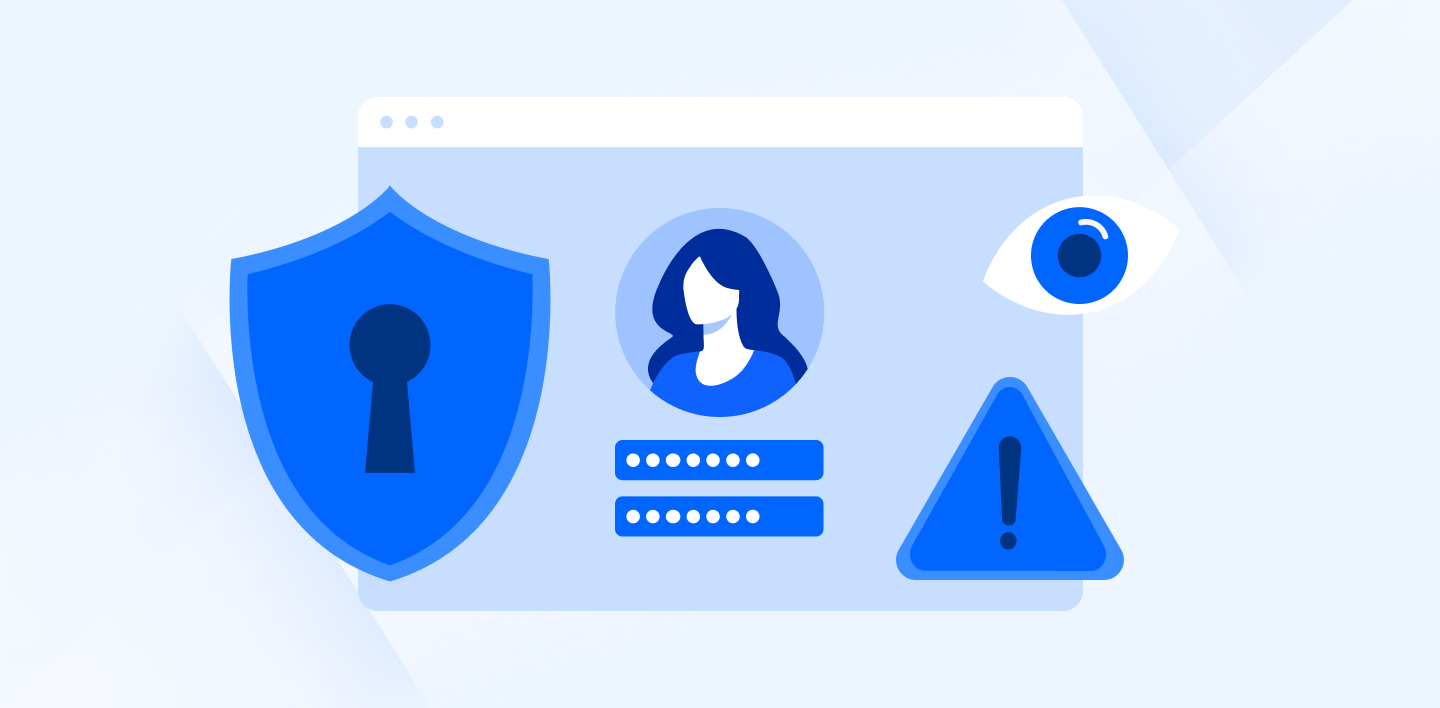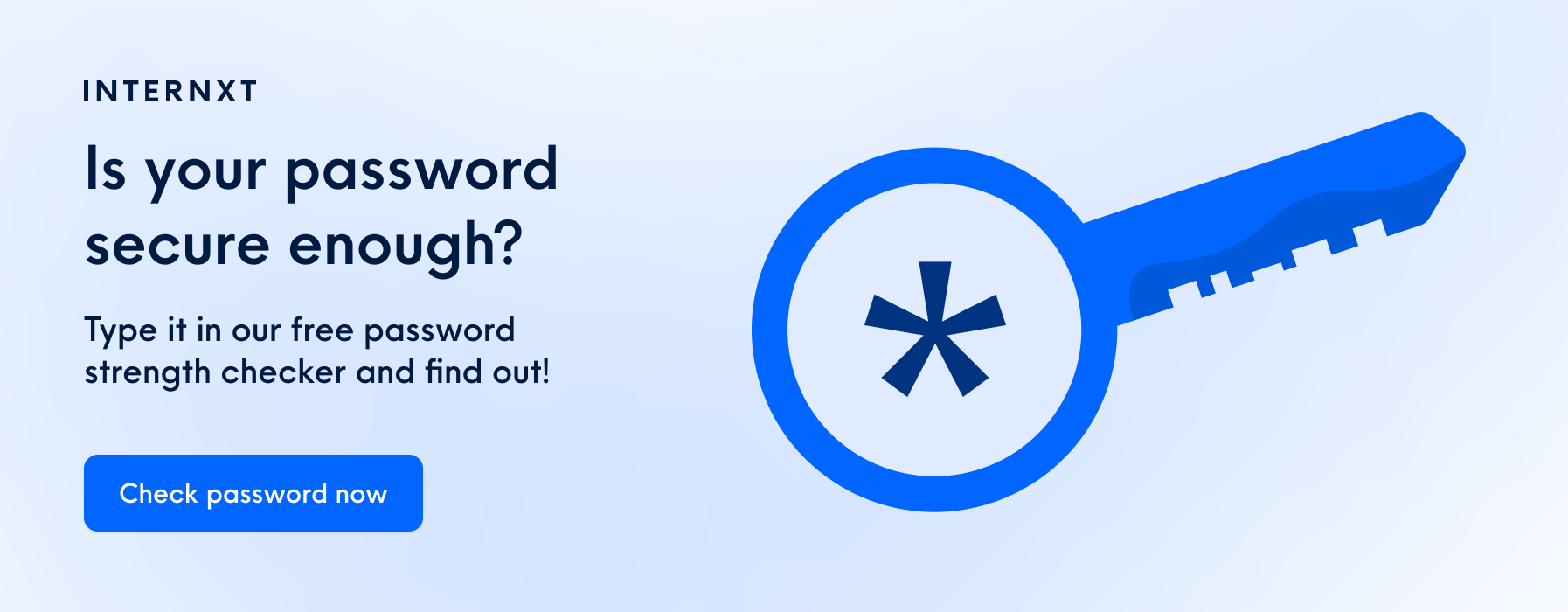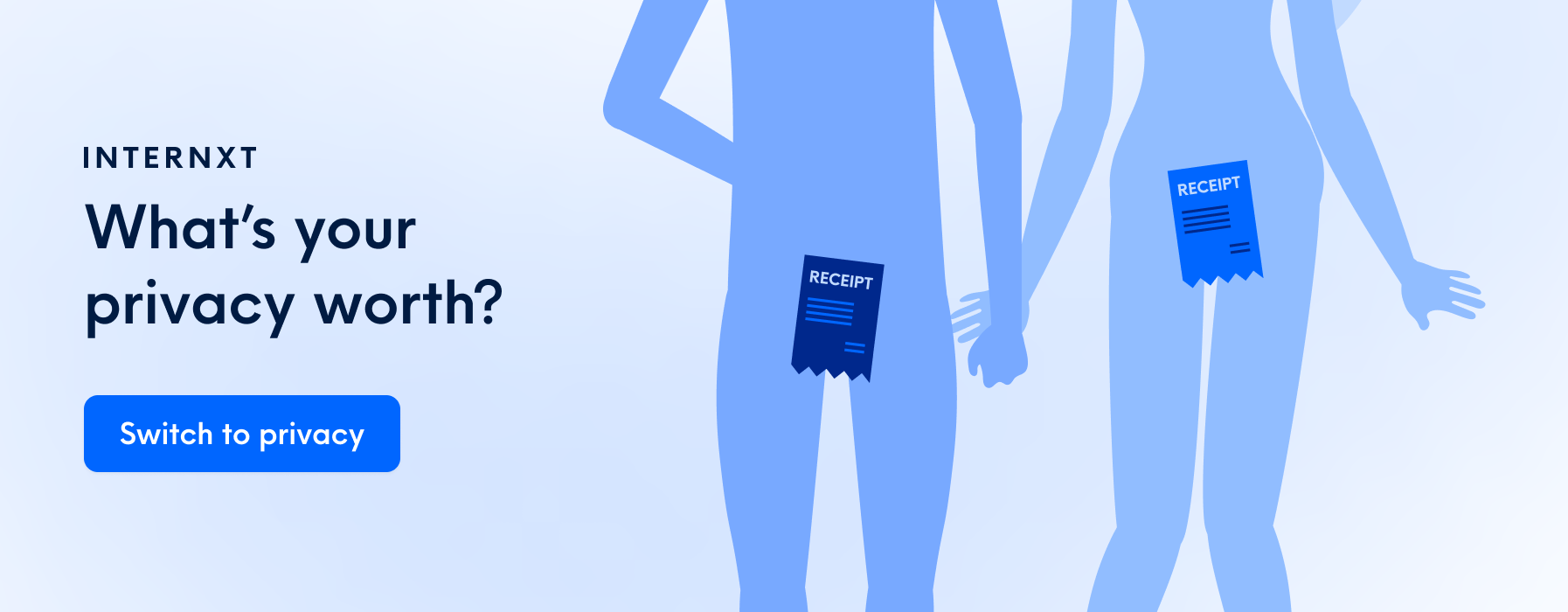How To Sign Up For Online Accounts Securely and Privately

Do you wish you could enjoy the internet's benefits while ensuring your privacy and security? Well, you're not alone.
According to a survey, 79% of U.S. adults said they were at least somewhat concerned about their online privacy and security, specifically how companies use the data collected about them. It's a valid concern.
In this article, you’ll discover critical tips for safeguarding your personal data and online security requirements.
8 Methods to Protect Your Personal Information When Creating an Online Account
As we become more reliant on the internet, we find ourselves using or requiring more and more online accounts. However, this seemingly routine action comes with potential risks you may not be aware of.
Without proper cyber knowledge, we could inadvertently expose our personal information to various threats, including selling our data to a malicious user such as a hacker or third parties.
In this article, you’ll discover key tips for safeguarding your personal data and online security and for positive experiences when you're surfing the web.
1. Create An Online Account Using a Disposable Email Address
As you sign up for online accounts, one common requirement is an email address. However, providing your real one can lead to spam or even selling your personal information to third parties. So, one of the many tips for online privacy and security you should follow is to use disposable email addresses.
Another option is to sign up for an account with a magic link; this prevents the need for a password, and you can sign in more securely with a unique, one-use link. However, you must ensure strong email security to prevent others from accessing this link.
A disposable email address is a temporary email you can use briefly and then delete or block any messages you receive. It’s perfect for signing up on websites you don’t trust or don't want to get spam from.
To create a disposable email address, use a free temporary email address generator like the one provided by Internxt. These email addresses do not require any personal information, and your details aren’t stored anywhere.
To further protect your digital security, when you want to send a cold email, instead of combing through websites that might not even be safe, use email lookup services to ensure the email you get is legitimate. You don’t want to end up sharing sensitive information with someone else. Conversely, you can perform a reverse email lookup to verify an email sender's identity and determine if the email is legitimate or is used for phishing scams.
So, don’t let spam and privacy concerns get in the way of your online adventures. Incorporate a disposable email address and an email lookup tool to protect your personal information and keep out suspicious emails.

2. Use a Virtual Private Network (VPN)
A VPN service enhances your digital privacy and security by encrypting your internet traffic and routing it through a different server. This makes it challenging for anyone to track your browsing habits. A recent survey showed that 31% of internet users have used a VPN service.
While VPNs are great, they're not a magic wand that will make you invisible. Websites can still track your movements using tools like cookies and browser fingerprinting.
To further beef up your online privacy, you might consider using an ad-blocker and privacy tools built into modern browsers. Also, install anti-virus software and use multi-factor authentication wherever possible to secure your online accounts. Being in incognito mode helps ensure Internet privacy and gives you a layer of protection, too.
Overall, using a VPN provides extra privacy protection and enhances personal security for your online account. Just ensure you pick the right one.
3. Avoid Providing Unnecessary Information When Creating an Online Account
To protect your online privacy, limit the data you share online in the first place. Unless you’re filling out LLC certificates, Social Security forms, or other online government forms requiring every detail, refrain from sharing too much information about yourself. You want to reduce your digital footprint.
So, when you create new online accounts, don’t give away sensitive data like your social security number, medical history, passport information, credit card details, or anything else that could compromise your online safety.
If you see that filling out a field is optional, then it’s best not to do so. Use your discretion and only share what's necessary.
What’s more? Consider the importance of limiting access to your digital assets, such as documents and photos, on social media sites. After all, the more individuals who have access, the higher the risk personal information falls into the wrong hands.
Take a self-critical and reflective approach to evaluate who truly needs access to these assets.
4. Never Use Your Personal Information as Your Passwords
Using personal information as passwords poses a significant security risk as they can be relatively easy to break. We must therefore incorporate strong password habits to secure our accounts. To do so, opting for a unique, secure password for each online account is one of the best security requirements for your accounts.
However, remembering dozens of password combinations can be impossible. so another option you can choose is creating a strong passphrase, which is generally favored over passwords due to its stronger security.
According to Google and Harris Poll, keeping track of passwords is a source of frustration on a regular basis for the majority of Americans. A whopping three in four respondents say they struggle with passwords.
As a result, many users just opt to reuse passwords rather than building strong password habits. A Google and Harris Poll study showed that 13% of Americans rely on the same password for all their accounts, while an additional 52% reuse passwords for multiple online accounts (but not all). In contrast, only 35% adopt different passwords for each account.
But reusing passwords across different accounts it significantly increases the risk of a password leak. If one of these online accounts gets hacked, the hacker may gain access to your other important accounts.
The good news is there’s a way you can remember your unique, secure password for each online account: Use password managers. It’s one of our essential tips for online privacy and security.
These tools store your complex passwords in one place, so you only need to remember one strong master password (to access the tools themselves). With password managers, you no longer have to manually fill in your username and password every time you log into a website; it will do it for you.
But that’s not all. Password managers can also generate secure new passwords for you. Reputable password managers can also alert you about weak password habits, such as common passwords or password reuse across multiple accounts that put you at risk of cybercrime.
Another option if you don't want to manage hundreds of passwords is secure biometric authentication methods, which use your face, fingerprints, or other methods to log you in without a password.
5. Always Review the Privacy Policy
When creating online accounts, carefully review the privacy policy of each service provider or website. The privacy policy outlines how an organization plans to handle your personal data.
Evaluating each privacy policy closely will help you make informed decisions. If you feel uneasy about a company’s potential use of your information, you can just choose to go to another one that protects your privacy better.
Bear in mind that the companies worth dealing with don’t just offer excellent services. They also care about what their customers think about them in other business aspects. So, from their websites to their privacy policy, businesses should put the privacy of their customer data above all else.
For instance, Applechem isn’t just one of the biggest cosmetic ingredient suppliers. It also has one of the best industrial website designs and a good customer privacy policy.

The privacy policy, in particular, is good because the company doesn’t process a customer’s information without their consent. They also have a visible data subject request form customers can fill out if they have a personal data privacy-related request. Having a clear privacy policy helps build positive experiences with the company and fosters a relationship of trust.
Carefully consider the company’s collection, use, and disclosure of your personal information. Ask yourself: does the organization gather data about me beyond what I provide on their sign-up form? Will this be a one-time occurrence, or is it an ongoing process?
It's also vital to determine how they plan to use your information. Will it be used for marketing, analytics, or other secondary purposes? If so, is it possible to opt out of such uses?
Reviewing the security measures in place is another important aspect of the privacy policy. Are they using encryption to secure your data, and what measures have they taken to prevent unauthorized access to your information?
Find out how long the organization plans to retain your essential information and if you can access it. You may wish to access it to update or rectify your personal details. Alternatively, you may request that the organization delete or erase your information.
6. Choose a Suitable Pseudonym or Alternative Name
Have you ever considered using a pseudonym to create a unique and anonymous identity for your online life? A pseudonym is a fictitious name that can be used for various purposes, such as on social networks, gaming communities, blogging, and more.
Just note that you can’t use this alternative name when filling out government forms.
Choosing a pseudonym or an alternative name can help protect your online privacy and security since you’re not giving away your real name. We know what happens when people get a hold of this personal information. A malicious user can use it to hack into your personal online accounts or commit identity theft and other online scams.
But how do you come up with the perfect pseudonym or alternate name?
Don’t settle for something too common, such as “John123” or “Stella1978.” You can use tools like Namechk or a Pen Name Generator to find a unique and available pseudonym.
Additionally, you can leverage Google Sheet tools like data validation and conditional formatting to organize and secure this information efficiently.
7. Review Third-Party App Connections
Third-party applications refer to the apps created by companies or developers distinct from the online platform you utilize. These apps may request access to your online platform to work better.
For instance, if you download a fitness app that enables you to schedule workout sessions with friends, the app may request access to your Google Contacts and Calendar.
If you grant these third-party apps access, you also increase your risk of network-level threats. Besides, the apps may have different privacy policies in place. So, if you allow them access, they may share your data with other parties without your consent.
To safeguard your online account, regularly review the apps with access to your data. If you’re using Google for instance, just follow these steps:
- Go to the Security section of your account.
- Proceed to the “Third-party apps with account access” section. Then choose “Manage third-party access.”
- Select the specific app or service you wish to review.
- If you want to remove the app as a third-party app connection, select “Remove access.”
By actively managing these connections, you can mitigate potential risks to your privacy. However, many people choose to use Google alternatives to ensure complete privacy and data protection, so this is another option you can consider.
8. Block Search Engine Tracking
Search engines can monitor your online activities and other data, from your website searches to your IP address.
They usually do this through tracking cookies and browser fingerprinting. They can then create a profile of you based on what they find and sell it to advertisers or third-party companies.
To enhance your privacy, configure your browser settings appropriately. Enable the Do Not Track setting to ensure tracking cookies are blocked when you’re online.
If you’re using Google, the process for this is pretty straightforward:
- Open Chrome.
- Click on the three dots in a vertical line on the right side of the browser. Then select Settings.
- Choose Privacy and Security, and then Cookies And Other Site Data.
- Turn the Send a Do Not Track Request button off.
You can also clear your browsing data to enhance your privacy after every use.
You can also install antitracking extensions in your preferred browser. For instance, the Ghostery Tracker & Ad Blocker doesn’t just help you block trackers on websites and non-private search engines. It also blocks ads on websites and even cookie consent popups.

A Review of the Essential Tips to Protect Your Personal Information
The digital age presents serious challenges to privacy, human rights, and online security. Despite this reality, you can take several crucial steps to protect yourself. By following the online privacy and security tips presented in this article, you can enjoy a safer Internet experience and regain control of your privacy.

